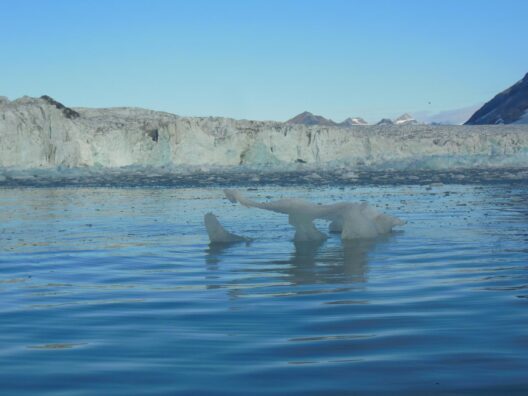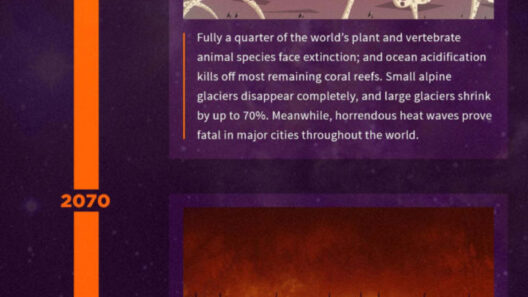Brazil stands at a pivotal juncture, grappling with the profound impacts of climate change. As one of the world’s most biodiverse countries, it bears an immense responsibility to safeguard its environment while navigating the escalating threats posed by global warming. Understanding how this phenomenon has reshaped Brazil necessitates a multifaceted exploration of the nation’s ecology, economy, and societal norms.
For centuries, Brazil has been renowned for its lush rainforests, particularly the Amazon, often referred to as the “lungs of the Earth.” These forests play a critical role in carbon sequestration, absorbing vast amounts of carbon dioxide from the atmosphere. However, deforestation has surged due to agricultural expansion, logging, and urbanization, releasing greenhouse gases and endangering biodiversity. With current statistics indicating accelerated deforestation rates, Brazil’s environmental integrity is in jeopardy.
This ecological degradation has far-reaching repercussions for global warming and climate change. Brazil’s climatic conditions are transforming, leading to irregular rainfall patterns, intensified droughts, and more severe flooding. Such phenomena threaten not only ecosystems but also the livelihoods of millions dependent on agriculture and fishing. As a result, farmers are faced with declining yields and uncertain future harvests, while urban populations must contend with an increased incidence of climate-related disasters.
Moreover, global warming has implicatively broadened the discourse on Indigenous rights. Indigenous communities, who are stewards of the land and possess invaluable traditional ecological knowledge, are increasingly witnessing their territories encroached upon by industries driven by capitalistic aspirations. The struggle for land rights has heightened tension within Brazil, sparking a movement advocating for sustainable practices and the recognition of Indigenous sovereignty as integral to climate resilience.
In response to the climate crisis, Brazil has made several international commitments aimed at reducing greenhouse gas emissions. The country became a signatory to the Paris Agreement, pledging to lower emissions by 37% from 2005 levels by 2025, with further aspirations for a 43% reduction by 2030. These commitments signify a critical pivot towards a sustainable future. However, the implementation of such promises faces considerable obstacles, particularly in balancing economic growth and ecological preservation.
The Brazilian economy is intricately tied to natural resources, with agriculture and mining representing substantial contributions to GDP. Consequently, the urgency to transition to a low-carbon economy creates a complex challenge for policymakers. The agribusiness sector, which accounts for a significant portion of exports, faces scrutiny regarding its environmental practices. While many in the industry advocate for technological innovations that promote sustainability, concerns persist about the overarching impact of any such advancements on local communities and ecosystems.
On the urban front, cities are increasingly becoming hotspots for climate adaptation strategies. With over 85% of Brazilians residing in urban areas, the focus has shifted towards developing resilient infrastructures equipped to handle extreme weather conditions. Urban planners are now tasked with integrating green spaces and sustainable transport solutions into city designs. These initiatives not only mitigate the urban heat island effect but also enhance the quality of life for inhabitants, promoting mental well-being and community cohesion.
Brazil’s rich tapestry of culture offers an essential avenue through which climate awareness can proliferate. Art, music, and literature serve as potent mediums for conveying messages surrounding environmental stewardship. Artists have begun to utilize their platforms to raise awareness of the ecological crises, encouraging dialogue and inciting community action. Such cultural interventions can significantly influence public perception, fostering a collective consciousness that prioritizes sustainability.
Furthermore, Brazil’s climate paradox is evident in the juxtaposition of its immense potential for renewable energy against the backdrop of fossil fuel dependency. While the nation has made commendable strides in harnessing hydroelectric power, the expansion of biofuels and wind energy remains imperative. Policymakers must invest in infrastructure supporting these renewable alternatives to ensure a comprehensive transition away from fossil fuels, reducing the overall carbon footprint and emphasizing energy sovereignty.
As Brazil navigates these intricate dynamics, the role of education cannot be understated. To empower future generations, educational systems must incorporate a climate-change curriculum that emphasizes ecological literacy and activism. By integrating climate science and sustainability into school programs, young Brazilians will become informed advocates for the environment, equipped to lead impactful initiatives in their communities.
The narrative of Brazil’s climate crossroads is not solely one of despair; it is also imbued with hope. The myriad grassroots movements in Brazil, championed by activists and citizens committed to preserving the environment, showcase a growing desire for proactive engagement. Initiatives focusing on reforestation, sustainable agriculture, and conservation efforts highlight the resilience of the Brazilian populace in confronting adversity.
In conclusion, Brazil’s intersection with climate change is multifarious. The challenges it faces demand innovative solutions and collective action. As the country stands on the brink of determining its ecological and economic future, the decisions made today will undoubtedly reverberate through generations. Engaging in global conversations, honoring Indigenous wisdom, and fostering cultural and educational shifts will ultimately pave the way for a sustainable Brazil, capable of addressing the challenges of global warming head-on. The journey may be fraught with difficulty, but it is also rich with opportunity, promising a transformative shift in perspective for the nation and the world.







